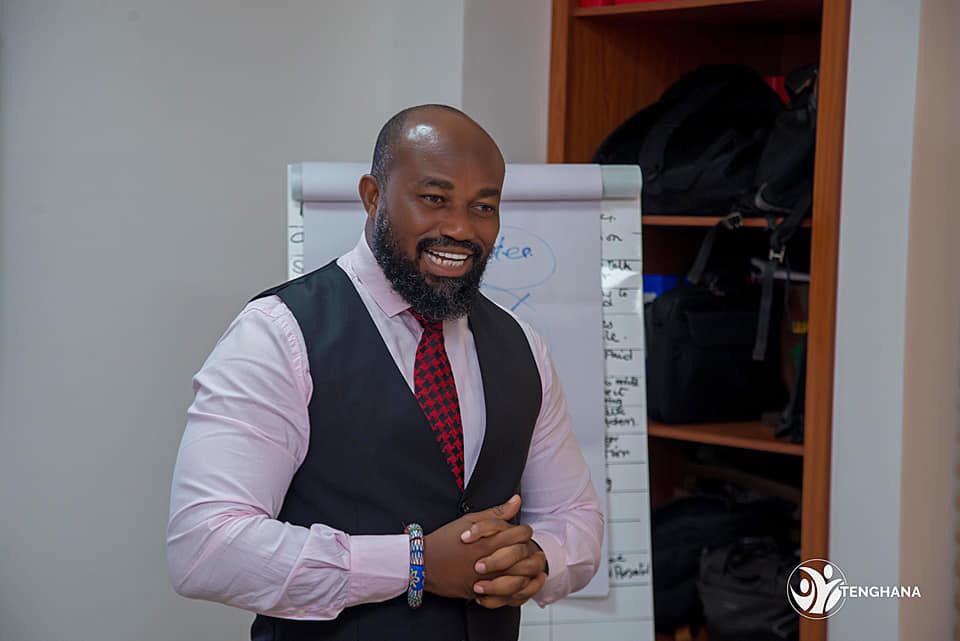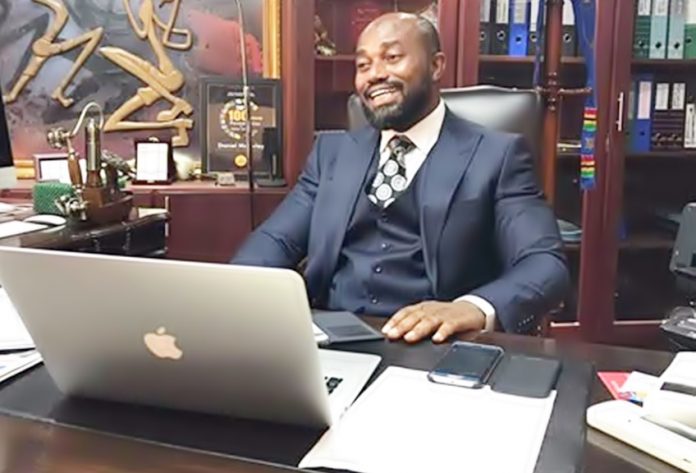I’ll seize my son’s cashew farm if he doesn’t pay back my money – McDan
A radio conversation by a father and a son has thrown light on a business arrangement between the blood relations that will ensure trans-generational success.
How does a successful entrepreneur such as the founder of McDan Group of Companies, Dr. Daniel McKorley, ensure his success does not get into his son’s head?
The two were guests on Joy FM’s Super Morning Show on Tuesday.
I am Father Business, not Father Christmas
His son, Nii Atukwei McKorley, has been trying to emulate his father’s entrepreneurial path and has started a cashew farm. It’s a 50-acre farm.
And that was when he leaned on his father for critical liquidity support he is most likely to never receive from any bank. His father stressed the money was a loan.
Without specifying how much funds he received, Nii Atukwei said he hoped to make US$800,000 based on his projections after the first year of harvest. The second-year would generate US$1.2million, by which time he will have turned 23.
But what would his father do if his son failed to pay back the ‘loan’?
The founder and Chief Executive Officer (CEO) of McDan Group of Companies, Dr. Daniel McKorley, indicated he was Father Business, not Father Christmas.
A loan is a loan and so yes, “if he does not pay, I will seize the farm,” Dr. Mckorley stressed.
But Nii Atukwei interjected, “I will make sure it does not happen.”
How McDan made it
Dr. McKorley dropped out of the University of Ghana after gaining admission. He said it was because he could not pay the fees. He would, however, attain a degree 15 years later.
He said, growing up, he struggled and learned entrepreneurship the hard way.
Born to a carpenter father and a housewife of a mother, with nine other siblings on the sidelines all living in Labadi, poverty was just as good as an inheritance for the Mckorleys.
Young McKorley was a carrier-in-chief. He carried everything you could imagine- kerosene, ‘bofrot’ [doughnuts] name them. He sold them barefooted just to raise a penny or two for soup and for school the next day.
Name any job in the wilderness of hawking and young McDan will tell you the job specifications. At age 12, he moved from the house to write his own CV in the world of work. He did all the menial jobs only the brave and the determined soul would do.
He was a houseboy, hired by a rich Labadi resident. He washed dishes, watered the garden and fed the dogs of his master.
He was a driver’s mate, hired to sit in cars he could only wash but not own; hired to shout from Accra to Madina and take monies from passengers, which he had to hand over at the end of each day’s work.
He was a messenger hired by a freight forwarder. He swept offices, cleaned desks of his bosses and run errands for them in ships he could only dream of owning.
He was a labourer construction sites. He mixed cement, carried concrete and built houses he could never afford at the time.
A risk-taker, an entrepreneur par excellence who earned multiple streams of income, even if it came in drops, McKorley invested in agriculture. He bought bags of maize and coffee during the harvest season, hoarded them and sold them during the lean season and made lots of cash out of it.

Mentorship is critical in education
With the challenges he encountered, he hopes his son can navigate past obstacles and “stand on his shoulder to be more successful” than him.
McKorley, who is a big believer in having the right attitude, explained the agreement with Nii Atukwei is the best way to go to ensure that the young man deploys time, discipline, commitment and skills to ensure that the cashew farm generates returns.
“We belong to a country where everybody wants everything for free. Immediately you give things out for free people do not work hard,” Dr. Mckorley explained.
How some billionaires want to train their children
Avoiding the signing off of free large fortunes to their children resonates with several billionaires across the globe.
Microsoft founder and second wealthiest person in the world, Bill Gates, is giving his three kids a small portion of his estimated $119 billion.
Together with his wife, they told the Daily Mail in 2011, “it will mean they have to find their own way”.
Billionaire investor Warren Buffett also plans a meagre inheritance to his offspring.
Mr. Buffett told Fortune in 1986, he wanted to leave his kids “enough money so that they would feel they could do anything, but not so much that they could do nothing.″
The fourth wealthiest person in the world is leaving just a fraction of his estimated US$88.9 billion as of December 2019 to his children.
The Washington Post reported in 2014. “Buffett’s three kids each have a $2 billion foundation funded by Dear Old Dad. The rest of his money? Going to charity.”
Similarly, Dr. Mckorley has indicated he is setting up his son for entrepreneurial success without wasting the accumulated fortune he has amassed.
Nii Atukwei’s task is to convert the loan into a viable cashew business in the next few years.
He is benefitting from mentorship and training under the guidance of his own dad.

‘I asked my son to defer his university program’ – McDan CEO
Taking his father’s advice, Nii Atukwei deferred his programme at the university while his colleagues were busy learning in the lecture rooms. He applied himself to his father’s business and worked in various subsidiaries of the McDan Group of Companies.
From the security subsidiary, he proceeded to the logistics wing, and that is where his burgeoning interest in business solidified.
That was when the young man “got the idea of starting a cashew farm”, his father narrated.
He said Nii Atukwei also followed the logistics people to the north of the country to distribute fertilizer.
“If he had been in the university at that moment, what would he have been thinking? Book, book, book?” Dr. McKorley expressed a preference for practical knowledge.
Nii Atukwei McKorley is now back to the University of Ghana to complete his first degree. Dr. McKorley believes in education, but not without mentorship, to excel outside the classroom.
Dr. McKorley is worried that some youth can draft brilliant business ideas, but “no bank” is willing to support them.
The aim of raising the next entrepreneurs has birthed the $100,000 McDan Entrepreneurship Challenge for Ghanaian Startups.
The Challenge is seeking to promote entrepreneurship among the youth in the country by helping them with training and mentoring through to project implementation.
Some 50 young people between the ages of 16 and 29 selected from all regions in Ghana are competing for up to US$100, 000.
Dr. Mckorley told Joy FM, “there is so much envy in this country”.
“McDan is being successful and everybody is jealous; Amoabeng is getting successful, and some else is jealous of that person. It is about time we got together,” he advised.
He has challenged people in the private sector to “run businesses with integrity”.
“If we do the wrong things it will catch up with us,” he warned. “Any business built on a strong foundation will never collapse.”




Mentorship is a contributing factor for the youth to live a honest life and be hardworking
Well done Mr. McDan. You are right, everyone wants free things in Ghana; including you. How do you call yourself a ‘dr.’ when you have not earned it? You also buy into these phony fake degrees. Are you that insecure in your achievements?